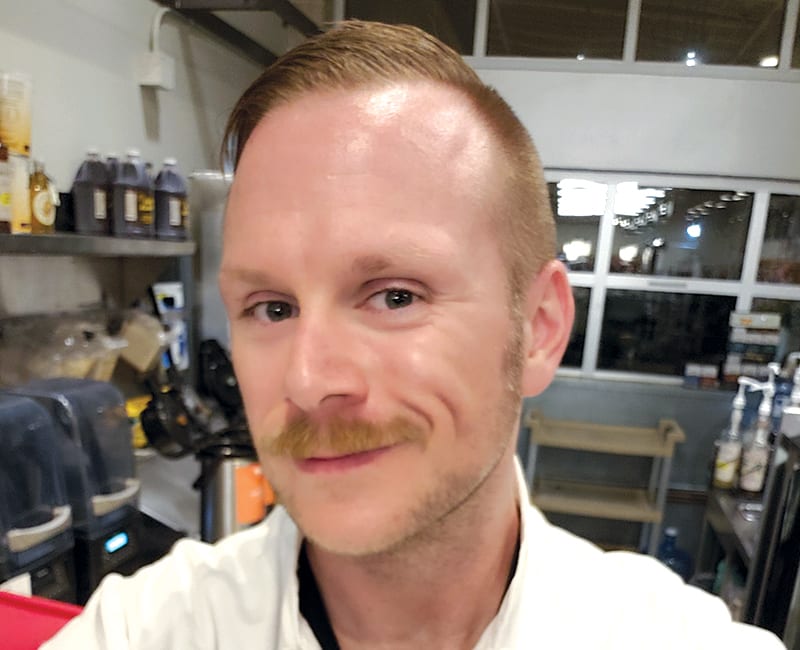FareStart: Changing lives
This article was originally published in November 2018

“We teach ‘knife and life’ skills,” quips Michelle McDaniel, FareStart’s chief development officer. “Our program won’t work unless participants are ready to apply themselves and change. We help everyone — from youths, aged 16 to 21, who need to move their lives forward, to adults who are facing significant barriers to employment.
“We tell them: ‘The past is in the past; deal with what’s holding you back and focus on the future.’ Our Adult Culinary Program is rigorous and we have high expectations. The number one way people hear of us is word of mouth,” McDaniel explains.
Brooks Mason is a 2016 graduate of FareStart who readily attests to the intensity of the program and just as readily swears to its success rate. He heard about FareStart from a friend, attended its Tuesday orientation, and set up an appointment.
The FareStart program is just like a full-time job: 16 weeks, five days a week, eight hours a day. Strict guidelines require punctuality, and if students miss more than one day, they must repeat the week. “Students complete competencies proving skill mastery; for some, the program may take longer, but never any shorter,” says McDaniel. “We offer shelter, meals, counseling, and a life skills specialist to help our students move forward with confidence.”
Brooks learned every phase of food preparation from peeling vegetables to making the perfect cappuccino. Everything the students prepare goes into feeding staff, students, and other organizations who benefit from the program’s output every day of the year.
“FareStart sets you up for success,” says Brooks. “You really have to not want to succeed in order to fail. I learned how to work with people who are not necessarily like me and to take initiative to accomplish assigned tasks on time without someone standing over my shoulder.
“The final phase was a computer lab where we set up an email address — nothing silly like ‘Rockstarbuddy,’” he laughs. “We prepared a cover letter and a skill-based versus chronological resume to cover employment gaps, and they conducted mock interviews. Truly, they’re so good that they make it impossible for you not to get a job! And you can return and use the lab for a full year if your job doesn’t work out.”
The day before he graduated, Brooks had an interview with the deli manager at Green Lake Aurora PCC, and immediately was asked when he could start. Now — two and a half years later — he’s had many offers for advancement.
“PCC has always felt like family,” Brooks explains. “The most rewarding part of my job is engaging with customers and they become my friends. I learned that at FareStart as well: to be acknowledged and feel like a person. I really love it. I learn my customer’s names and stories, even their typical order so that it’s ready before they ask for it.”
